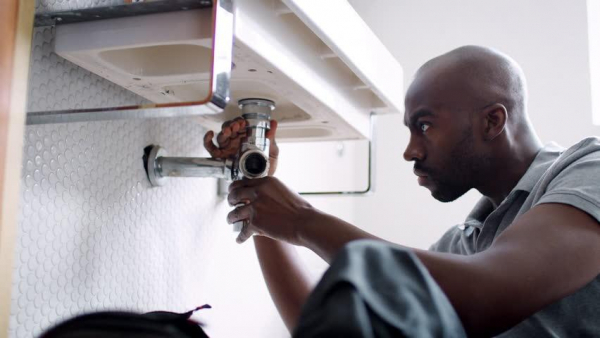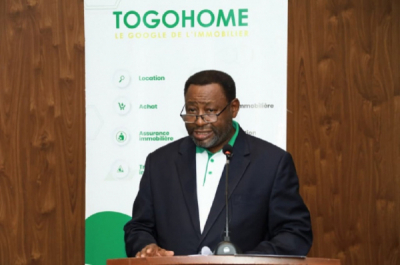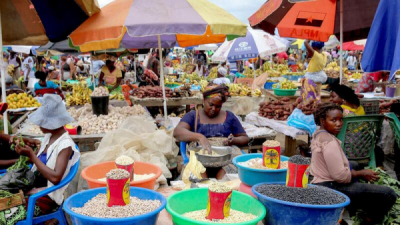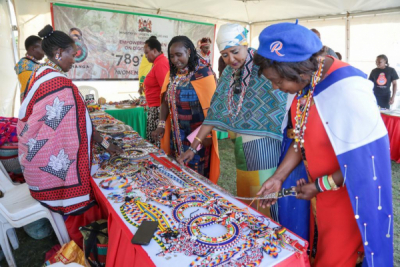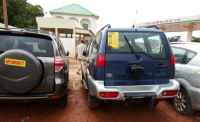
Solutions (581)
Thanks to digitalization, it has become easy for African entrepreneurs to create solutions for major challenges. In Uganda and Kenya, a fintech startup is helping address the low credit access problem.
Tugende is a Ugandan startup that allows informal entrepreneurs, and small and medium-sized enterprise owners notably, access to credit. Doing so, the startup founded in 2013 by Michael Wilkerson helps them grow their businesses, build their credit profile and set up income-generating activities.
“90% of businesses in Africa are MSMEs yet they receive less than 20% of total available credit. Tugende began by filling this credit gap for motorcycle taxis in Uganda, helping these self-employed entrepreneurs own instead of renting their key productive assets in 24 months or less,” the startup explains.
Its services are accessible through its Android app. To request a loan from Tugende, users must be registered and have an account with the startup. If those conditions are met, they can submit a loan request and let Tugende carry out a background check by interviewing two of their relatives. After that step, they are required to deposit at least USh100 (about US$0.027) in the account opened with Tugende.
The startup’s decision to grant loans is based on background checks and a big data and artificial intelligence system that predicts how beneficiaries will likely use the credits awarded.
Currently, Tugende claims 52,000 users financed, over 29,000 active clients, and 800 full-time jobs created. In May 2022, it won the financial inclusion awards during the sixth edition of the African Banker Awards. Since its creation, the startup has completed several funding rounds totaling US$51.1 million. Apart from Uganda, it is also active in Kenya.
Adoni Conrad Quenum
Although they are still lagging compared to their western peers, Africans are actively participating in the ongoing digital transformation. In Benin for instance, a tech entrepreneur is leveraging technology to help the population easily access some services.
Ylomi is a Benenise startup that connects artisans with potential clients. The startup was founded in 2018 by Jean Vivien Dah N’Gbekounou following the latter’s scornful experience.
“ In 2016, during a prolonged outage period in Benin, I had a hard time finding a mechanic who would repair my broken generator. The only one who was referred to me conned me by charging three times the normal repair costs without even doing what I wanted him to do. This experience, which is common to most Africans, plunged me into deep reflection, leading to the creation of Ylomi,” Jean Vivien explains.
The services offered by the startup are accessible through its web and mobile platforms (the mobile app is available on AppStore and PlayStore). Users can either register as artisans or clients. In either case, a set of information is required.
The artisans approved by Ylomi offer various services including TV repair, plumbing, massage, etc. In Cotonou, the startup claims 458 professionals, 153 in Abomey-Calavi, and 73 in Porto-Novo.
Let’s note that Ylomi has public liability insurance for domestic workers and service providers offering their services via its platform. This way, it can protect both artisans and clients from problems that may arise in the course of their dealings.
Adoni Conrad Quenum
Digitalization is gradually taking on every aspect of human life in Africa. It helps address several issues and helps reduce the time necessary to complete processes that would take days, months, or years. In Togo, a proptech wants to do the same in the real estate industry.
Togo Home is a digital platform launched by the Togolese eponymous startup in January 2022 by Edmond Joseph Messan (photo). It allows users to easily find real estate properties meeting their desired characteristics.
“With digitalization taking on every aspect of human life, we estimate that it would be useful to develop a platform allowing every trained real estate agent licensed by the state to submit updated offers. That way, our compatriot will only have to input the characteristics of the property they need, check the available properties and their prices, discuss the terms then visit the chosen property before concluding the deal,” Edmond says.
The platform has a mobile app, available on AppStore and PlayStore. It lists all the real estate properties available for sale or rent with all the information needed. Users can filter those properties depending on what they intend to do (rent or buy), where they want it, and the type of property they need. Once a user clicks on a listed property, more pictures are shown with a phone number to contact to proceed further.
Let’s note that to access all of Togo Home’s features, users need to register by filling in the required information (name, email address, and phone number). The platform claims to be the leading real estate search engine (note: Google de l’immobilier in French). To be the first actor informed of any real estate property available in the country, it signed a partnership agreement with the Togolese association of real estate agents.
Adoni Conrad Quenum
The informal sector is an important segment of the African economy. Yet, actors are most of the time left to fend for themselves for various reasons. In Angola, an entrepreneur has decided to digitize the sector with a virtual marketplace.
Roque Online is a digital platform developed by Angolan eponymous startup founded in 2018 by Geraldine Geraldo. It is a virtual marketplace allowing traders to take their businesses to the next level. Its name is inspired by Roque Santeiro, a famous Angolan market active between 1991 and 2011.
“Our focus is to help anyone compete effectively in modern society. Whether you’re an informal market vendor, small business owner, or a large distributor, you can download our mobile application and start registering your inventory so we can start monetizing it on our website or through our partners’ e-commerce channels,” the startup explains on its platform.
The digital platform has a mobile app available on PlayStore and AppStore. To assess its services, users must first create an account and put up goods and services for sale. To boost the user base, the startup invites market women to offer their goods and services online. That way, it helps create additional income for the women, who were not aware of the existence of an online market where they could reach more clients.
Roque Online has become a reference marketplace to buy almost anything and get them delivered. From food products to services, customers can access anything they want from informal traders. This allows small family businesses to expand their consumer base and adapt to the changing business environment. In 2019, the startup won the first prize at Seedstars Luanda.
Adoni Conrad Quenum
Ushanga is an initiative supported by the Office of the Vice President, the Ministry of Commerce, Industry and Cooperatives, the various county governments, and the Ministry of Public Service, and Gender among others.
Ushanga is a digital platform set up by the Ushanga Initiative and supported by the Kenyan government. It aims to help women in West Pokot, Samburu, Narok, Kajiado, Marsabit, Baringo, and Turkana sell their beaded accessories online.
Speaking during the launch of the platform, the Sports, Heritage and Culture Cabinet Secretary Amina Mohamed explained that the platform would expose the women’s “beautiful work” to the world, which will then respect their “intellectual capacity.”
In Kenya, every pastoralist community has its special way to make beautiful accessories. With the platform, they can present such diverse offerings to potential customers in the local market and also to international buyers. Earrings, bracelets, chest plates, rings, and belts are some of the items that will be available on the platform.
According to Hellen Nkaissery, chairperson of the Ushanga Initiative, “as pastoralists’ women, the women who are low in the radar, now they are being lifted up through the support of our government, through the program of Ushanga Kenya Initiative, and we are being put in a platform where other parts of the country have also been supported.”
In the framework of the Ushanga Initiative, the Kenyan government has decided to invest US$4 million to impact the lives of 5,000 women. Those women will be endowed with professional skills, leading to the creation of 60 cooperatives.
Adoni Conrad Quenum
African startups are increasingly relying on venture capital funding to support their growth but, that funding mechanism is still not accessible to every one of them. So, a Nigerian startup has come up with a solution that helps the ecosystem and also gets people to invest.
GetEquity is a digital platform developed by a Nigerian fintech startup founded in 2020. The platform connects African startups with investors to help fund their growth. According to co-founder and CEO Dike Jude, the startup challenges the status quo of startup financing and venture capital by democratizing access to startup financing, “thereby expanding the pie for previously underfunded, and underserved startups.”
It also allows users, be they individuals or institutional investors to invest in the local startups they like. To fulfill its mission, the platform has a mobile app available on AppStore and Playstore. Users can create their accounts through the app or web platform by filling in personal information and loading their wallets. Once those steps are completed, they can buy shares (as low as US$10) in growing African startups or sell previously owned shares.
GetEquity claims to have attracted more than 6,000 investors on the continent.
Adoni Conrad Quenum
E-commerce platforms have gained popularity with the Covid-19 pandemic because they are more convenient and save time.
Carniger is a website allowing users to quickly buy cars, motorcycles, trucks, and parts in Niger. The website was launched in 2017, by Africargroup, Africa’s first automotive marketplace.
To buy a product on Carniger, users have to visit the website, check the information of listed cars/motorcycles/trucks, and select what they like. Users either register or login in and contact the seller either through the website’s chat feature or by dialing the number listed. Buyers can also directly make counter-offers for the products listed.
The website also has a buy now and pay later service that connects potential buyers with specialized institutions for vehicle financing. To access that service, interested buyers must submit a valid Nigerien ID card or passport, justify a permanent source of income, and provide a bank statement dating six months before the financing request. Then, they fill out a form to quickstart the process.
Let’s note that the platform also facilitates insurance subscriptions.
Adoni Conrad Quenum
Tech solutions have become handy tools in most sectors. In the education sector, platforms are also proliferating to help learners in their curriculum.
Ennajah QCM is a digital platform developed by Bibliothèque Ennajah, which allows students in clinical clerkship and residency training access to specialized books and courses. It helps students check their knowledge with multiple-choice questions.
Ennajah QCM "is a virtual platform that allows quick access to all the MCQs needed to pass the various Setif clinical clerkship and residency evaluation exams. It, therefore, facilitates the simple and accurate review of the skills developed by students,” Bibliothèque Ennajah explains.
The platform is accessible through a mobile app currently available on Playstore only (the iOS version will be available soon, according to Ennajah). Users have just to register by providing the information required. Once completed, he/she can start answering the multiple-choice questions or even personalize the questions to answer by filtering the sources, courses, modules, exam years, and pass rate.
Currently, Bibliothèque Ennajah claims 86,616 MCQs on Ennajah QCM and over 10,000 app downloads.
Adoni Conrad Quenum
Africa’s fintech sector is currently attracting huge amounts of investment capital. The reason for that interest is the continent’s poor financial inclusion and the startups offering interesting alternatives.
Motito is a Ghanaian fintech startup founded in 2020 by Tobi Martins. The startup allows its users to buy products and pay in installments from partner brands.
In its own words, it gives users “the chance to buy items for personal and business needs without breaking the bank.” It also promises partner brands “to turn window shoppers into actual paying customers” and increase their order value by 40%.
The startup has a mobile app (available on Android and Ios phones). The app, called Motito PayLater allows users to access all the services the startup offers. To access those services, users must first register and activate their accounts by filling in the information required at each stage of the process.
Once they activate their accounts, they can visit the online stores of partner brands, make purchases and select the payment plans most suited to their income flows. The maximum installment period is three months, however.
With Africa’s credit access challenges, solutions like Motito’s are needed to combat financial exclusion. In June 2022, the fintech startup was selected with eight others to participate in the second edition of the Norrsken Impact Accelerator.
Adoni Conrad Quenum
Digital jobs are now popular because of the technological revolution, which was accelerated by the coronavirus pandemic. In Africa however, there is still a digital skill gap. Some edtech startups want to close that gap.
GOMYCODE is a teaching concept developed by Tunisian edtech GoMyCode to teach advanced programming and digital courses. It includes a mix of projects and exercises to allow learners to master the skills taught. Half of the courses are taught online and the other half at the 20 offline centers the startup has in its markets, namely Bahrain, Morocco, Egypt, Algeria, Côte d’Ivoire, Senegal, and Nigeria.
For Amine Bouhlel, co-founder of GoMyCode, the teaching concept has notable impacts. “There are a lot of impact and mass-market players. We are targeting a wide range of students. So our courses are not just for graduates, professionals, or people from a specific social class. [...] GOMYCODE programs target mass markets, and our blended model makes us accessible and affordable, which you don’t see a lot,” he explains.
The concept is taught by over 500 teachers who teach in 12 languages. The startup has launched more than 25 training paths with professionals. Its fees vary between US$250 (for 3-month courses) and US$750 (for 5-month courses). For every student trained it guarantees placement with one of its over 100 partner institutions. Currently, it claims it has already secured placement for 80% of its over 10,000 learners.
Currently, the startup plans to attract more than 100,000 learners and open an additional 50 offline centers in Africa and the Middle East in the next two years. For that purpose, early this month (June 2022), it raised US$8 million to expand its presence. Its target markets are South Africa, Kenya, Ghana, and Saudi Arabia.
Adoni Conrad Quenum
More...
In Gabon, the coronavirus caused a decline in blood donations, which were already not enough to meet demand. Ntchina wants to reverse the trend and help save more lives.
Ntchina is a digital platform that matches blood donors with recipients. The platform was first presented to the public by its developer (the eponymous Gabonese startup Ntchina) in 2021. On Tuesday, June 14, 2022, on the sidelines of World Blood Donor Day, it was officially launched.
Alvine Yeno, Ntchina’s founder, explained that the platform is the result of a sad experience. Indeed, one of her relatives suffering from lupus needed a blood transfusion but none of the calls for donors issued by her family yielded a result. “It was difficult finding donors. Calls for donors made on social media and to other relatives were not successful… I then asked myself what I could do to make that search more effective and help those in need. So, I started developing the project,” she explains.
The platform has a mobile app (available on AppStore and Playstore) that allows access to all of its services. Users can either register as donors or recipients by filling in a set of information including hometown and blood type. When donors with specific blood types are available, the platform can send alerts to users who activated that option. “Our mission is to facilitate blood donation for better care to those in need, notably sick people, pregnant women, accident victims, etc,” Alvine says.
Her startup also developed an online game to raise awareness of the importance of blood donation. Her initiative is highly important given that in Gabon, since the onset of the coronavirus pandemic, blood donations have declined. Before the pandemic, authorities used to collect about 23,000 blood bags yearly. The volume was not enough to meet demand but, with the coronavirus-spurred decline, the gap between supply and demand has widened considerably. With Ntchina (which means "blood" in Myene), the gap could be reduced and more lives saved.
Adoni Conrad Quenum
In some parts of the African continent, it is still hard to access healthcare either because of the lack of healthcare personnel or their distance to health centers. Some tech entrepreneurs are trying to fix that.
Clafiya is an e-health platform that allows access to affordable healthcare in Nigeria. It connects patients in rural and peri-urban areas to community health workers.
The platform was developed by eponymous healthtech startup Clafiya founded in 2020 by Itoro Inoyo and Jennie Nwokoye. Its goal is to allow everyone to access healthcare. As its co-founder Itoro Inoyo explains, health is a fundamental human right so, no one should be left out no matter their race, gender, or socioeconomic status.
As internet connection is not always available in the areas targetted by Clafiya founders, the platform is accessible via a USSD code (*347*58 #). Users can then dial the code, register by providing a set of information, and book primary care anytime they want.
The healthcare packages offered by Clafiya cost between US$4.9 and 12. Each of the packages allows access to different primary care and services including blood pressure and blood sugar level screening, primary care consultation, rapid malaria, and typhoid diagnostics. If the case is serious, the patient is referred to a medical specialist, either online or offline.
Adoni Conrad Quenum
During the coronavirus pandemic, the number of e-learning platforms exploded. Two Beninise techpreneurs have decided to ride on that trend and revolutionize foreign language learning.
Nors is a mobile app developed by Benenese startup Phoenix Group, allowing users to learn foreign languages. The mobile app is available only for Android phones. It has four notable menus. The first is aimed at making the user learn specific words and phrases related to topics like family, emotions, relationships, the human body, and sickness. The second menu is for those who want to learn how to converse. This menu presents a set of conversation scenarios and how to respond. The third menu shows practice videos in which actors practice the real-world conversation scenarios users learned. The fourth menu is for networking, enabling users with common learning goals to practice and converse together.
To easily attract users, Phoenix Group set a sponsorship program rewarding users with points for every user they invite. The aim is to make Nors the go-to platform for language learning in Africa in the next three years. The app is free for every user, both registered and unregistered. Unregistered users can learn the languages they want through Nors but they cannot access technical resources or interact with the learning community.
Let’s note that Phoenix Group was founded in 2020, by Serge Atchoua and Essou Fulgence. Before developing the e-learning platform Nors, it developed Gala Space, a mobile platform on which users can promote their products and events.
Adoni Conrad Quenum
Years back, Rwanda initiated a plan to make the country an important tech hub. The result of that ambition is the sheer number of startups, which are developing solutions to address local challenges.
Fixa is a Rwandan startup that links companies with pre-vetted blue-collar workers. The startup was founded in 2020 by Tafara Makaza.
On its platform, it explains that its “aim is to ensure corporations have access to reliable help and management solutions for workplace projects of all sizes while supporting service providers with more job opportunities, social protection, and formal training.”
Apart from providing businesses with reliable workers, Fixa also allows site supervisors to conveniently measure attendance and productivity. With the Fixa mobile platform, supervisors can assign workers to specific tasks when they need to, access performance history in real-time, and take instant decisions when a worker is underperforming.
It also allows businesses to manage their blue-collar workforce, and instantly brief all the selected workers on project details or even updates. To subscribe to Fixa services, businesses and supervisors have to book a demo (a video conference) with the sales team to present their projects.
Currently, Fixa claims over 300 workers in its network, and some fifty job requests are processed weekly.
Adoni Conrad Quenum



